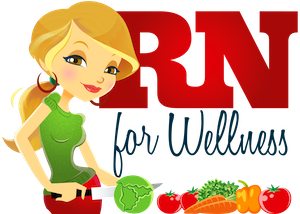Energy Drinks:
Drinks like Red Bull and Rockstar advertise high doses of caffeine, energizing vitamins, amino acids and herbal supplements. They are advertised in a way that sounds healthy but when you break down the ingredients the main ingredient responsible for the high energy effect is sugar.
Calories=energy, that is what your body uses for fuel.
Energy drinks need to be thought of as “calorie drinks”. A 16oz Red Bull packs in 220 calories and a 24oz Rockstar packs in 420 calories. That is as much as a double cheeseburger minus the staying power. If you were to eat a double cheeseburger you are likely to be full for several hours. If you drink a “Rockstar” you may feel the effects for an hour or so and then find yourself hungry. The main reason for this is because most of the calories in the energy beverage comes from simple sugars. When you consume simple sugars separate from fiber, fat and protein the sugars hit your bloodstream quickly. Your body can only utilize so much sugar before it caps out. When the body receives a big load of sugar the pancreas releases additional insulin pushing that sugar into fat cells. In the long run just as with drinking sugary sodas you will put on weight. In the short term you are hit with the “crash” leaving you feeling tired and looking for another lift. The problem is you have just consumed 420 calories.
Many people opt for the DIET energy drink. The main sugar in these drinks are synthetic sugars which are known to intensify your hunger cues. The other issue with these drinks is the unregulated amount of caffeine they put in the beverage. The FDA does not limit the amount of caffeine allowed in energy drinks. A 16oz can of Wired X 344 has 344 milligrams of caffeine. The average cup of coffee has 40-180 milligrams of caffeine. Many people who consume greater than 200 milligrams of caffeine in one sitting will experience nervousness, headaches, nausea, and insomnia.
The final issue with these drinks is the added supplements and amino acids. Many of the claims made are from studies where participants ingested much higher doses of the vitamins or amino acids in order to reap the benefits of the additive. The quantities of these additives in the energy drinks fall far below the amounts needed for any actual benefit.
Energy Shots:
For a lower calorie, less filling alternative consumers are turning to energy shots. The 5-hour energy shot fits in your purse. They were designed for runners and cyclists for a quick energy boost without all the calories and heavy fluids. Energy shots are a misnomer because there is no energy calorically speaking in them. They should really be called a stimulant drink. Over time your body will develop a tolerance to the caffeine in them and you will become desensitized to the buzz. Caffeine doesn’t just stimulate your brain but is also keeps your brain from detecting fatigue. The rule with these shots is that they should only be used periodically and primarily when doing an endurance sport. They should not be used for everyday fatigue.
Sports Drinks:
Gatorade and Powerade are the most commonly purchased sports drinks on the market. As far as replacement drinks and energy boosters go these are one of the better choices. They were developed for two reasons: to help keep athletes hydrated and to provide them energy. They are designed to be used during physical activity not for a daily drink without activity. They are high in calories and sugar so drinking them without exercise is not a smart diet move.
Sports drinks have become a go-to for our kids and that is a bad choice as well. Some of these drinks have as much sugar and calories as soda. They are not a healthy option for our kids. These drinks should be given to our kids after a soccer game or when they are dehydrated from illness and need the electrolyte boost.









